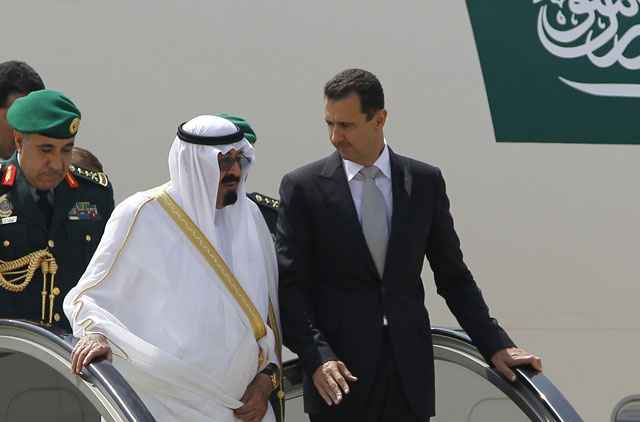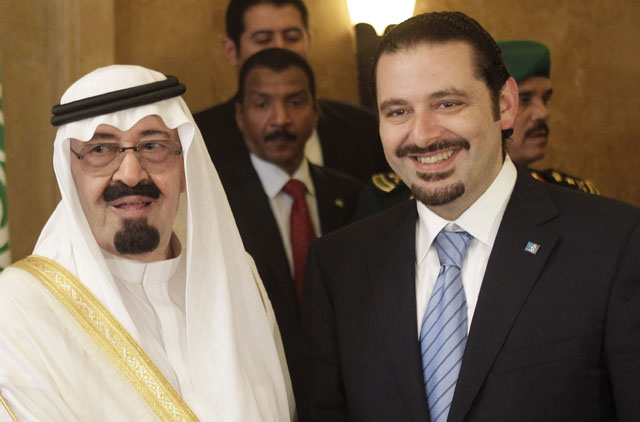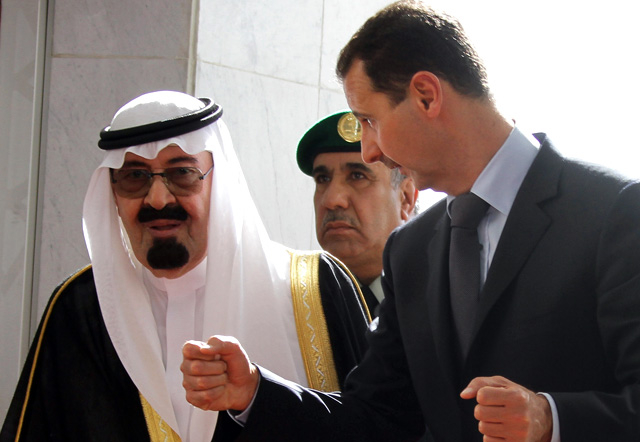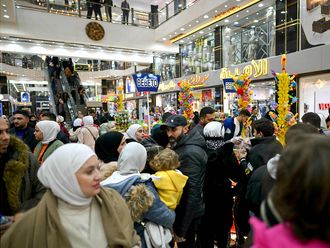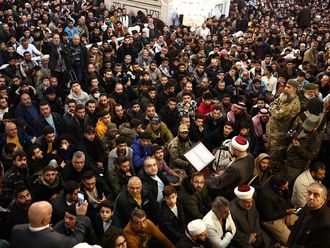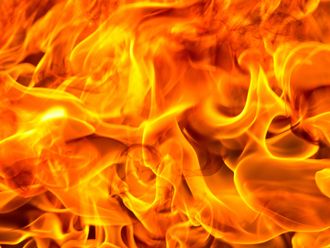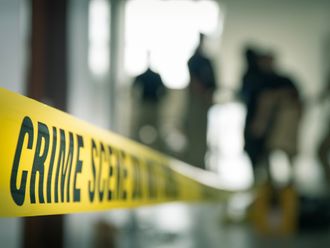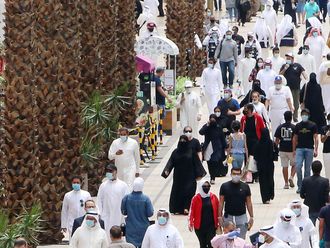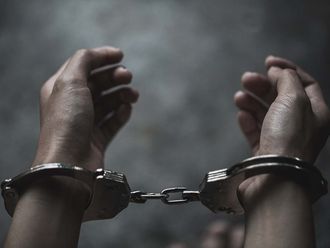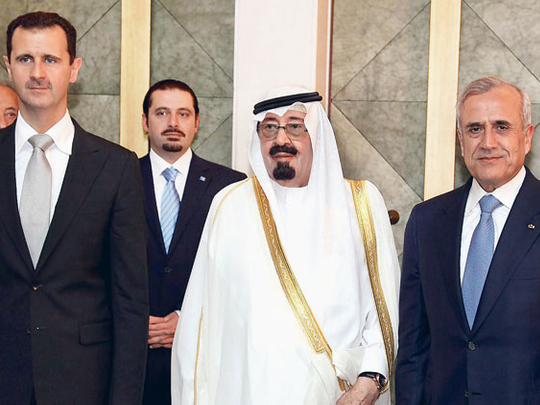
Dubai: Visiting Saudi King Abdullah and Syrian President Bashar Al Assad on Friday urged Lebanese parties to avoid violence in the face of mounting political tensions in the country.
"The leaders stressed the importance of stability ... [and] the commitment [of the Lebanese] not to resort to violence and the need to place the country's interests above all sectarian interests," said a communique issued by the Lebanese presidency after a mini-summit between the two leaders and President Michel Sulaiman.
Faith in law
The statement also stressed the need to "resort to legal institutions and Lebanon's unity government to resolve any differences".
The Syrian president and Saudi monarch hoped to defuse tensions over reports of an impending indictment against members of Hezbollah for former Lebanese prime minister Rafik Hariri's murder.
Asked about the outcome of the talks as he left the presidential palace, the Syrian leader gave a thumbs up and said: "The discussions were excellent."
Al Assad was visiting Lebanon for the first time since Hariri's assassination soured bilateral ties and forced the pullout of Syrian troops from Lebanon after a 29-year presence.
Current Lebanese Prime Minister Sa'ad Hariri, Rafik's son, greeted Al Assad at the airport with a friendly smile and a warm embrace — in stark contrast to relations a few years back, when Sa'ad had accused Syrian agents of murdering his father.
Damascus has consistently denied accusations that it had a hand in the killing. Relations between the two countries have been on the mend since 2008, when diplomatic ties were established for the first time.
Sa'ad Hariri has made four trips to Syria in the past eight months. Political stability in Lebanon has been under threat since Hezbollah leader Hassan Nasrallah blasted the tribunal and warned against the indictment of any members of Hezbollah.
Nasrallah said the tribunal is highly "politicised", and accused the West and Israel of seeding tension, instability and division in Lebanon.
Given all this, it is important for Damascus and Riyadh to help to form a united Arab front and bury past grievances so that they can fulfil their promises to work together to promote stability in the region.
Analysts say that in addition to threatening peace, an indictment of Hezbollah members would deal a blow to the party's reputation and destabilise Hariri's unity government.
Hastily-organised meet
The meeting between Lebanese President Sulaiman, King Abdullah and Al Assad was hastily organised amid fears of Sunni-Shiite violence erupting in Lebanon should the UN court probing Hariri's 2005 murder implicate the powerful Hezbollah.
Abdullah and Assad arrived together from Damascus and met Sulaiman before attending a luncheon to which members of Lebanon's unity government - which includes two Hezbollah ministers - have been invited.
Saudi and Syrian flags were on display throughout the capital along with huge portraits of the king and a welcome message.
Security was also tight, with additional army and police deployed and some streets cordoned off.
"The whole visit is about containing the situation for the immediate future," said Sahar Atrache, a Beirut-based analyst with the International Crisis Group think-tank.
"They are here to exert influence on their internal allies... to prevent a real escalation."
Syria, as the main power broker in Lebanon at the time, was widely blamed for the murder of the Sunni former premier Hariri , but it has consistently denied any involvement.
Relations have been on the mend since 2008, when diplomatic ties were established for the first time between Beirut and Damascus. Saad Hariri has made four trips to Syria in the past eight months.
Saudi Arabia, a staunch supporter of the slain Hariri and his son, has played a key role in the rapprochement between the two countries.
The Saudi monarch is expected to press Assad to use his influence over Hezbollah, which is backed by Syria and Iran, to avoid a political stalemate or a sectarian conflict similar to the one that brought Lebanon close to civil war in 2008.
Fears of renewed conflict rose last week after Hezbollah leader Hassan Nasrallah said he knew that the UN tribunal probing Hariri's murder was set to indict members of his Shiite party.
He made it clear that he would not accept such a scenario, accusing the tribunal of being politicised and part of an Israeli plot.
"The Arab leaders' visit to Lebanon is an opportunity to show Arab unity in the face of this plot which aims to destabilise Lebanon and sow sedition," Hezbollah deputy Hassan Fadlallah told AFP.
"This would not be in the interest of the Lebanese or their Arab brothers."
Analysts say that in addition to threatening civil peace, an indictment of Hezbollah members would deal a blow to the party's reputation and destabilise Hariri's unity government.
"This joint visit is historic and decisive because of its timing and the consequences it can have on a mounting crisis in Lebanon related to the tribunal," said Friday's Arabic-language daily Al Nahar newspaper, which is close to Hariri's coalition.
King Abdullah will be the first Saudi monarch to visit the country since 1957. He also attended the 2002 summit, but was crown prince at the time.
— With inputs from AFP
Can Assad's visit to Lebanon along with King Abdullah of Saudi Arabia ease tensions in Lebanon? What do you think is the root cause of the tension and how will it be best solved?


